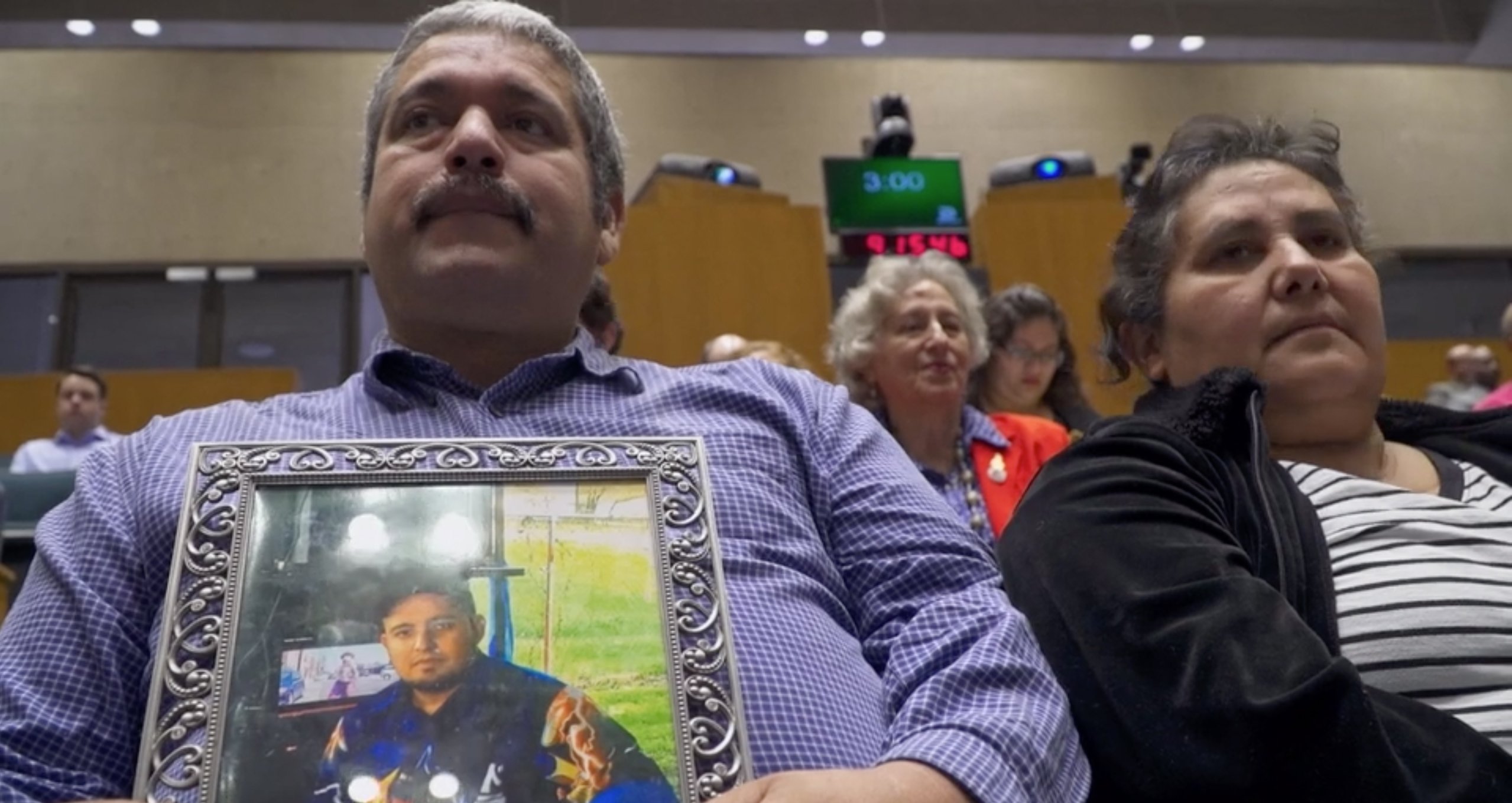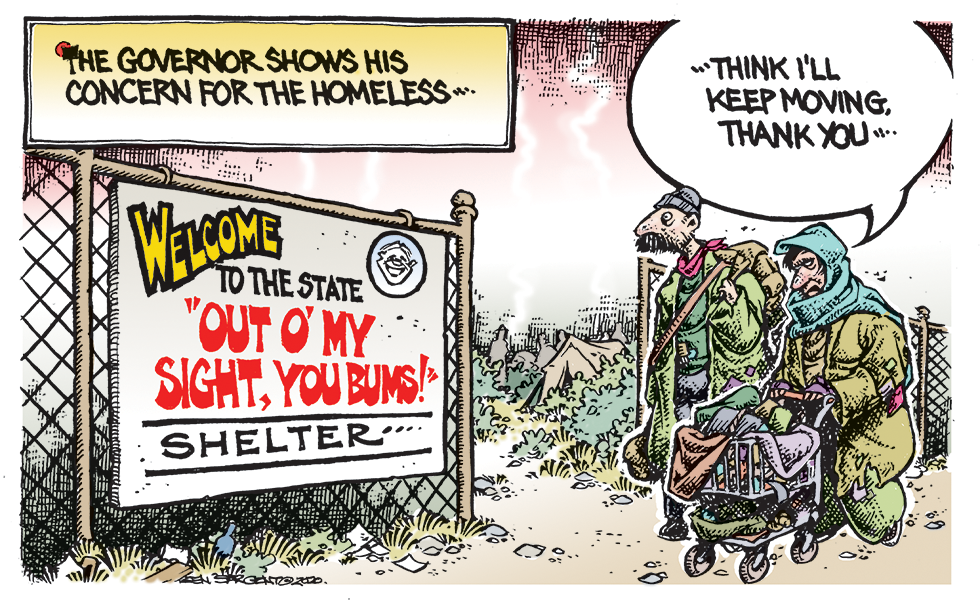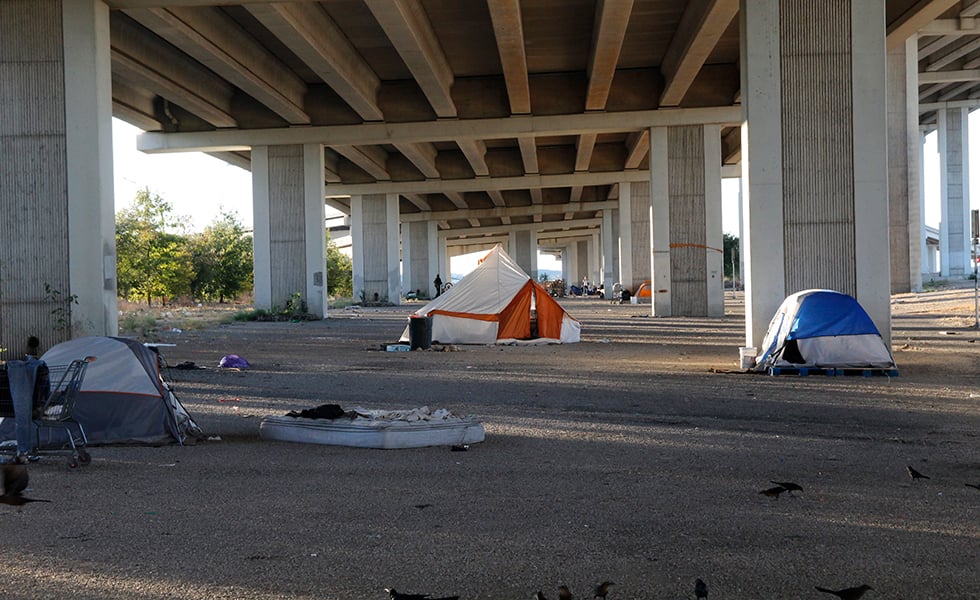
New Documentary Reveals the Deadly Cost of Texas’ Anti-Worker Agenda
As the Legislature ponders yet another crackdown on labor, Building the American Dream explores the stakes of labor policy in the country’s largest red state.

Roendy Granillo, 25, was installing hardwood flooring in a house near Dallas when the heat started getting to him. It was July 2015, and the temperature had hit 97 degrees. According to Granillo’s family, he asked his boss for a water break but was denied, and he grew sicker as the day wore on. By the time a coworker rushed to a nearby house and had a neighbor call 911, it was too late. Granillo’s body temperature had reached 110 degrees, and his organs were failing. He died at the hospital that evening. Granillo left behind a young daughter, two siblings and a pair of grief-stricken parents. In Texas, deaths like his are just the cost of doing business.
Granillo’s story features prominently in a new documentary, Building the American Dream, which debuted on Sunday at SXSW. A striking mix of intimate drama and something approaching a how-to guide for community organizers, the film traces the Granillos’ fight to give meaning to his death. Alchemizing their trauma into action, the Granillos helped lead a movement that won a citywide ordinance in Dallas requiring that construction workers get a 10-minute break every four hours. That policy passed in December 2015, five months after Granillo’s death. Austin is the only other Texas city with such a rule.
The film is timely, as the Texas Legislature is currently contemplating yet another broadside on workers in the Lone Star State. As soon as this week, the Texas Senate could vote on Senate Bill 15, a sweeping pre-emption bill that would stop cities from passing progressive labor policies requiring private employers to provide any type of benefit, leave or scheduling accommodation. The bill would also undo the mandatory paid sick days policies passed last year in Austin and San Antonio, as well as the rest break rule the Granillos fought for — the policy they believe would have saved Roendy’s life.

The film is unafraid to poke holes in Republicans’ Lone Star mythmaking. Juxtaposed with Governor Greg Abbott droning on about businesses flocking to Texas, we hear from Cristina Tzintzun, co-founder and former director of the Austin-based Workers Defense Project, which fought for Dallas’ rest break policy. “There is an ugly side to the ‘Texas Miracle’ that a lot of people don’t talk about,” Tzintzun says, noting that half the state’s construction workers are undocumented and one in five will experience wage theft. “The people who are building the state’s economy are dying.”
Roendy’s father, Gustavo Granillo, is a construction worker himself. Like at least half of Texas’ construction workforce, he’s an immigrant, and he nails the hypocrisy of the state’s rulers. “For the politicians who are against us, they should think about how we might have been the ones who built their houses — where their kids are sleeping, studying, watching TV, where they’re living comfortably,” he says, as he installs the baseboards in a highrise apartment. If Roendy had lived, Gustavo says, the two were going to start their own flooring business.
Not every part of the documentary coheres. One perplexing scene involves a Republican-voting CEO of a construction company, apparently eager to show how much he likes immigrants. The boss laces up his boots, puts on his reflective vest and guides us through a worksite — where he proceeds to overestimate how much his own workers are earning and asks a new hire, “How many years you been with us?” Whether the filmmakers were subtly ribbing the executive, the viewer is left to guess. The timeline can also be confusing, as the film jumps between the 2015 fight for rest breaks in Dallas and 2017 Trump-era policies without guideposts.
“There is an ugly side to the ‘Texas Miracle’ that a lot of people don’t talk about. The people who are building the state’s economy are dying.”
But, overall, the film succeeds — in no small part thanks to extensive access to the families. The director, Austin native Chelsea Hernandez, began work on the project a decade ago, building relationships over years with her subjects. In one hard-to-watch scene, a young man kneels before the grave of his father, another construction worker who also died on the job, and weeps uncontrollably.
By the end, a clear but unlikely hero emerges: Jasmine Granillo, Roendy’s 11-year-old sister. Jasmine testifies before Dallas City Council, despite hostility from some of the members. (At one point, Council member Lee Kleinman calls her and her supporters a “bunch of charlatans coming in here, posing for the unions.”) After winning the rest break policy, she brings the film home. “I hope people remember my brother as a great person — a person that died for workers,” she says. “I want people to think of him a hero.”
As some Texas Republicans move to undo Jasmine’s victory, we’ll soon learn how the lawmakers who run this state remember Roendy, if they remember him at all.


